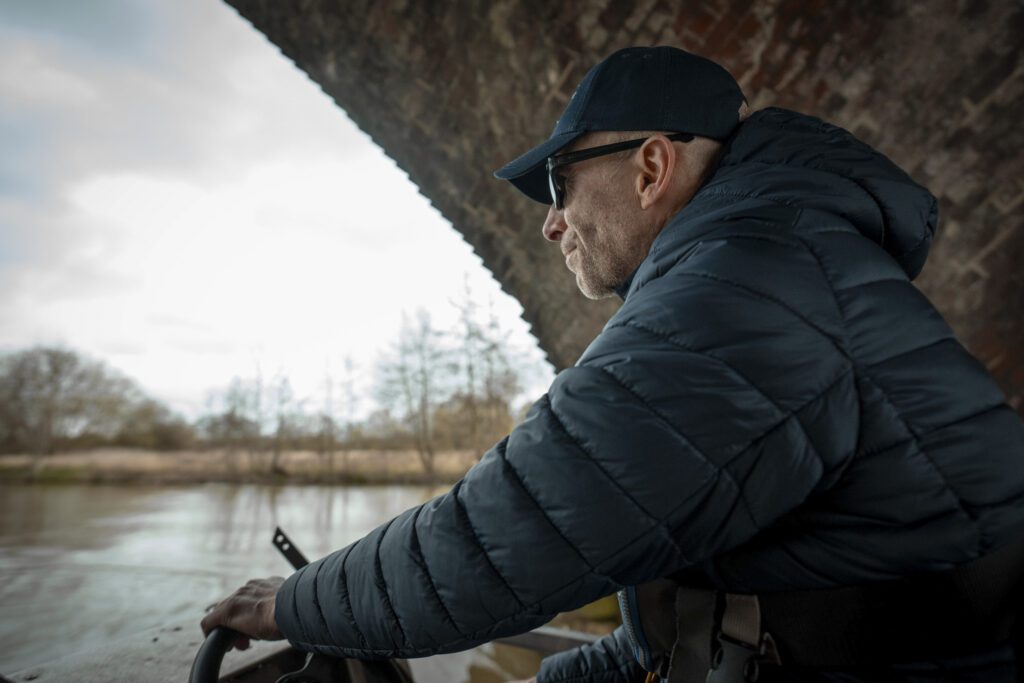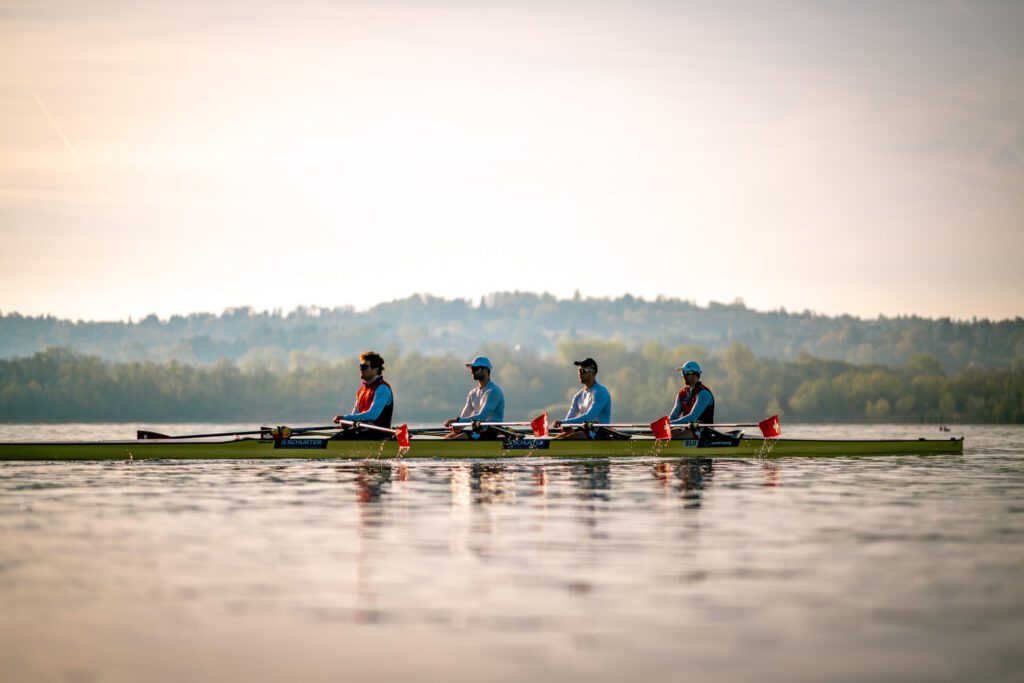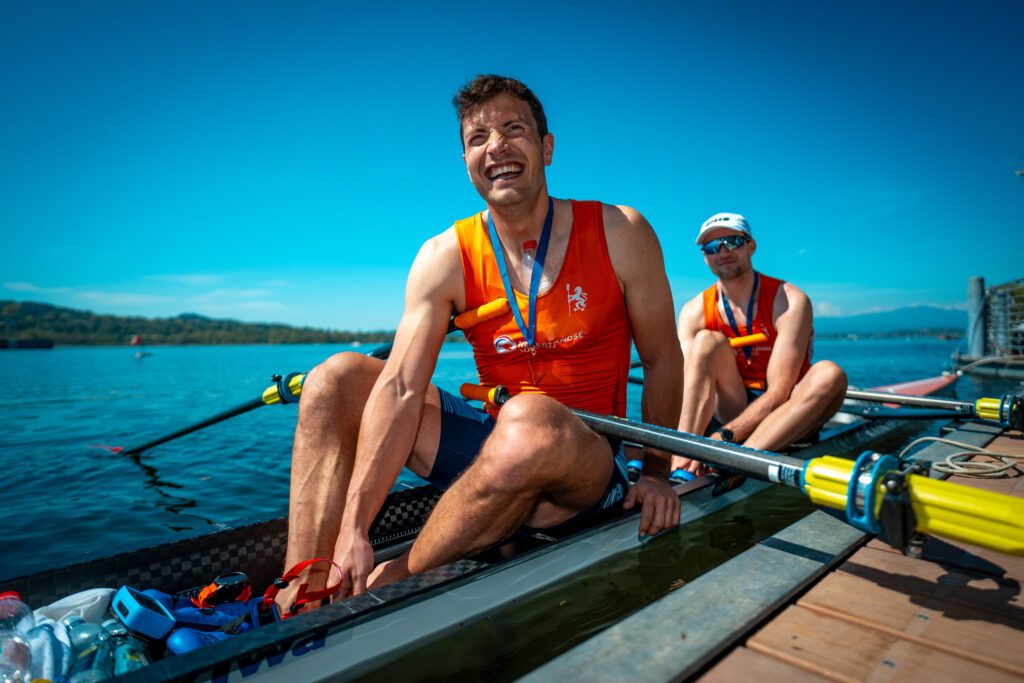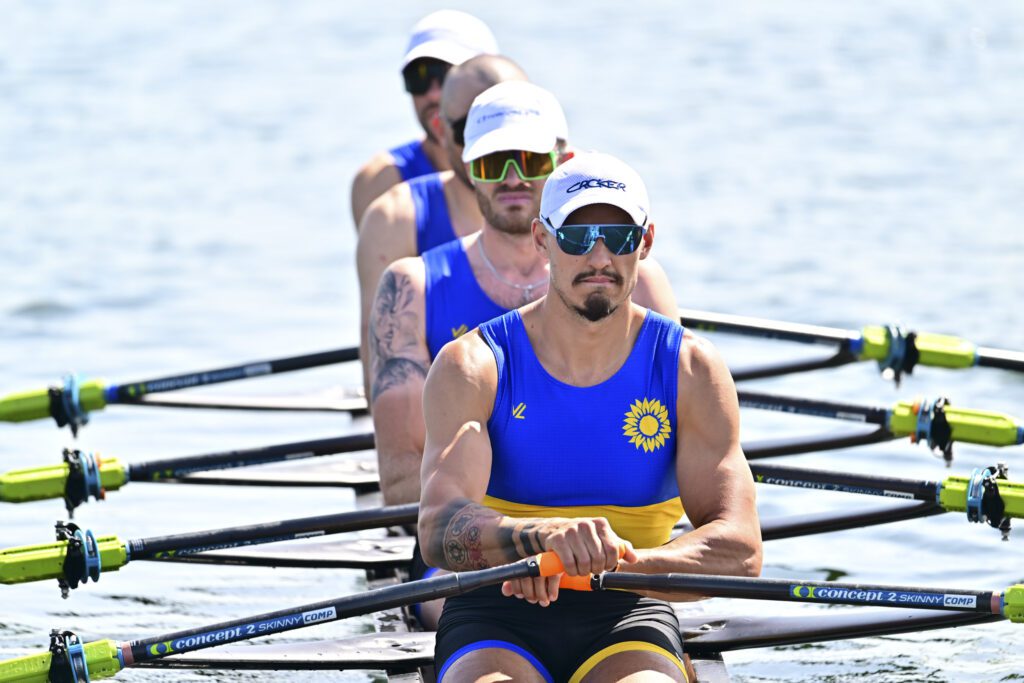The Netherlands ruled the second world cup waves, taking six golds and a total of twelve medals which gives them an almost unassailable lead in the World Rowing Cup standings for 2022 even though they aren’t going to Lucerne. They lead seven of the Cup events, five of them by more than five points and have plenty of interestingly strong new crews starting to develop fearsome reputations. In Poznan they won medals — and the traditional stuffed goat toys — with all but two of their crews, and despite the fact that they are still tinkering with combinations, seem already to have hit on several fast options.
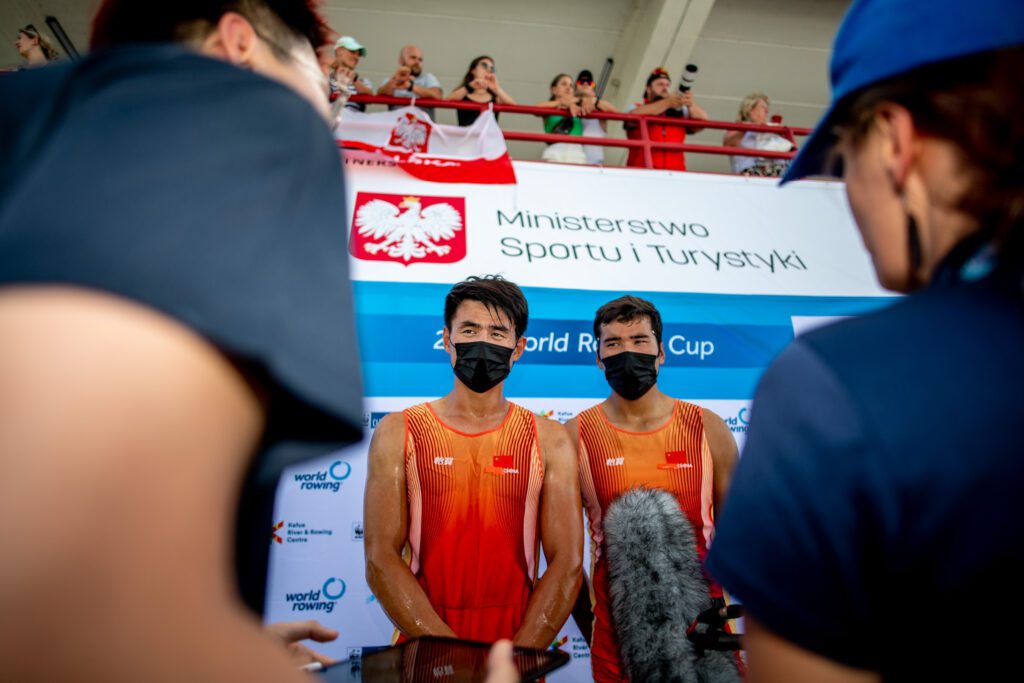
Photo CHN M4x
Credit Benedict Tufnell
One of these is Melvin Twellaar, who has yet to face a full field of top single scullers but nevertheless has already shown he has plenty of tricks in his toolbox. This time he was barely challenged by Frenchman Matthieu Androdias, but his straightforward clear water M1x win was eclipsed by that of Karolien Florijn who was head, shoulders and a full eight seconds quicker than Swiss sculler Jeanine Gmelin in the women’s singles. The revelation was Aussie Tara Rigney, yet again making her mark and this time beating Germany’s reigning U23 champion Alexandra Foester to the bronze. She is looking dangerous. “The plan was just to get stuck in at the beginning because the conditions there were a little better than the remainder of the course”, said Gmelin. “I really fulfilled that goal and it put me in a good position. The race itself didn’t feel like a great race but I executed the plan. Originally I didn’t even plan to come here so it was a kind of spontaneous decision. I took a longer break and really took it steady going back into training, so I knew coming here my form would be lacking quite a bit in terms of fitness but in the end I’m glad I came here because it’s been a confidence boost.”
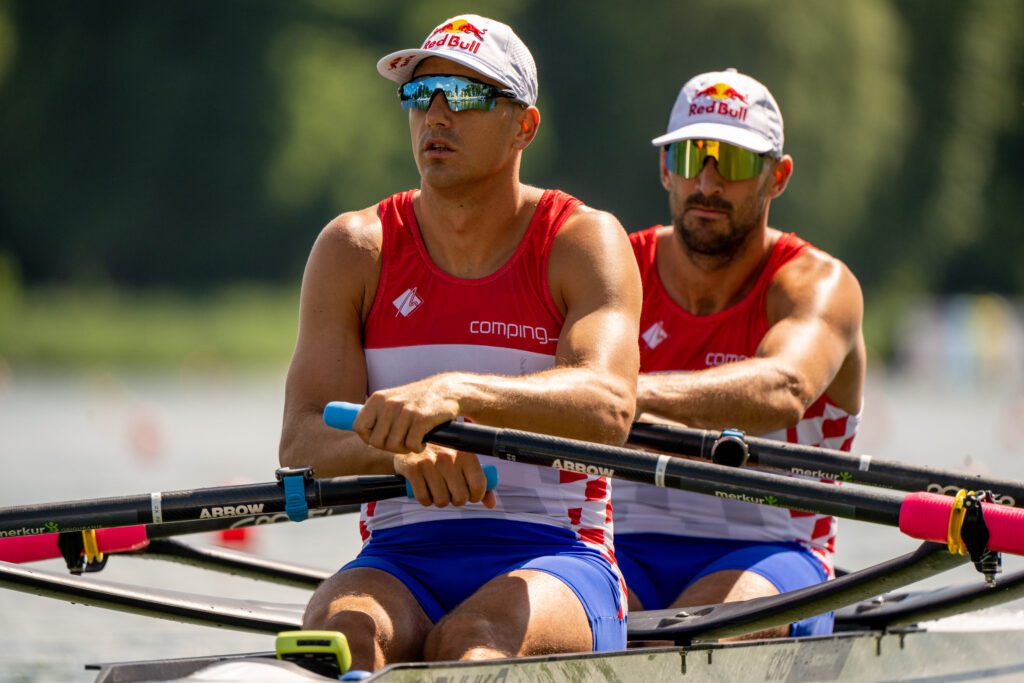
Photo CRO M2x
Credit Benedict Tufnell
Out of several excellent finals one standout was the men’s doubles, in which the Sinkovic brothers stuck their foot down on Poland’s Miroslaw Zietarski and Fabian Baranski in the third 500m to win again (so what’s new?) but then watched as a barnstorming scrap for bronze behind them resulted in a rare true dead heat. World Rowing’s finish judges were unable to separate Australian and the Netherlands by even a fraction of a centimetre in the timelapse photofinish picture after the Aussies rowed the Dutch down, so both were awarded bronze medals – organisers always keep spares ready just in case. The Sinkovics, by the way, are now very practised at the post-Covid ceremony technique of presenting one another with medals: a swift swipe to take the cap off, medal ribbon whisked over the head then a rapid hand-clasp in congratulation before it’s the other brother’s turn. Much faster than the way the World Rowing big names do it. After the race Australian Jack Cleary was philosophical. “Racing is training, training is racing. I’m very proud of Caleb and myself and how we’ve built. The great thing about Australian rowing is that it’s an amazingly competitive sport.”
“The Dutch were going to be a long shot considering their skill…”
Kara Kohler
One feature of a first year in any Olympiad is the concentration of talent into the small boats for women’s events. This is not because women’s rowing is weak or sub-par: far from it. But there are still too few top oarswomen in many countries to generate the numbers needed for large boats until quite late in Olympiads. So it was from the women’s fours, pairs, quads and doubles that the most exciting racing came, the women’s eight being too much of a walkover for the Dutch to tell us anything other than that Denmark is still pursuing a clear eights policy into the new Olympiad.
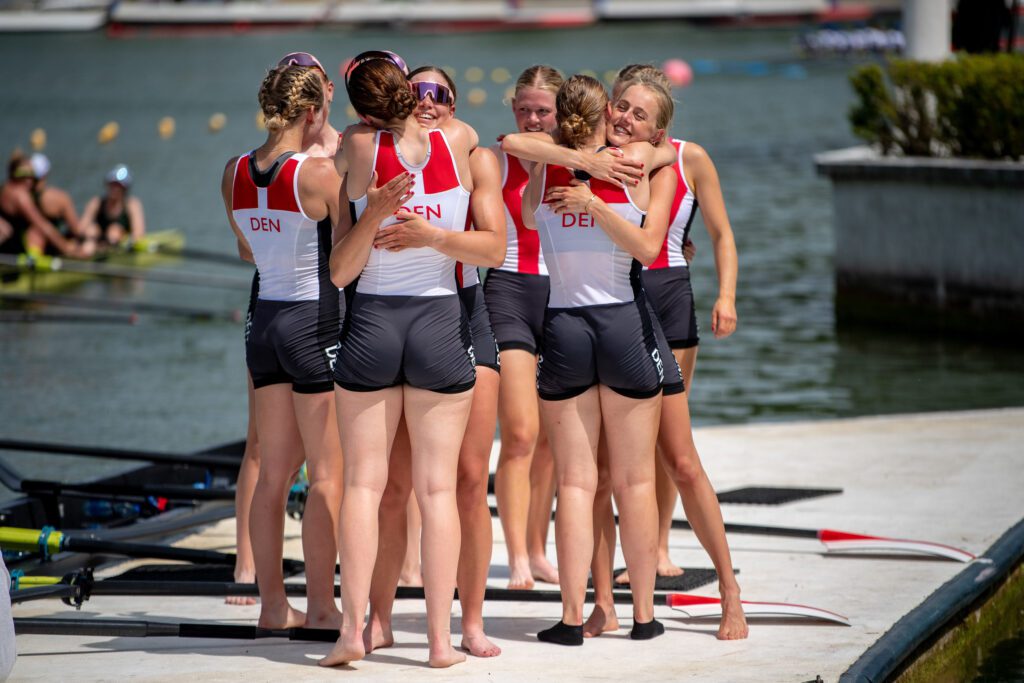
Photo DEN W8+
Credit Benedict Tufnell
For the most part the Dutch held sway over the women’s small boats, though they were bettered in the fours and quads. In the quads China had the strongest hand, their Belgrade combination having been strengthened further by a change of seats and the return of a third Olympic champion oarswoman. But the current Dutch squad never gives up and the NED foursome charged again in the closing stages, perhaps as much to keep off Switzerland as to try and close the small gap on the Chinese. Disaster struck as they caught a small crab just before the line, pushing them into third behind the Swiss who were delighted with silver. “We were trying to fight for gold all the way, but it became really chaotic in the last hundred metres and we’re relieved we get to go to the podium today”, said NED’s Johanna Vos. The fours went to Australia, their Tokyo-inspired combination having the upper hand, though pressed extremely hard by the Dutch for the whole race. As the line approached Ireland came roaring back to push the two lead crews, giving the Dutch the fright of their lives and forcing them to sprint like cheetahs to remain second.
The Dutch women’s top pair of Ymkje Clevering and Veronique Meester caught a crablet of their own at the start, Clevering hooking air on her fourth stroke which let the USA’s Madeleine Wanamaker and Claire Collins get away to establish a decent lead. However, the Dutch were back on terms by halfway, stalked the Yanks for several minutes and then lit the booster with 200m to go, moving past the USA for gold like knives through butter.
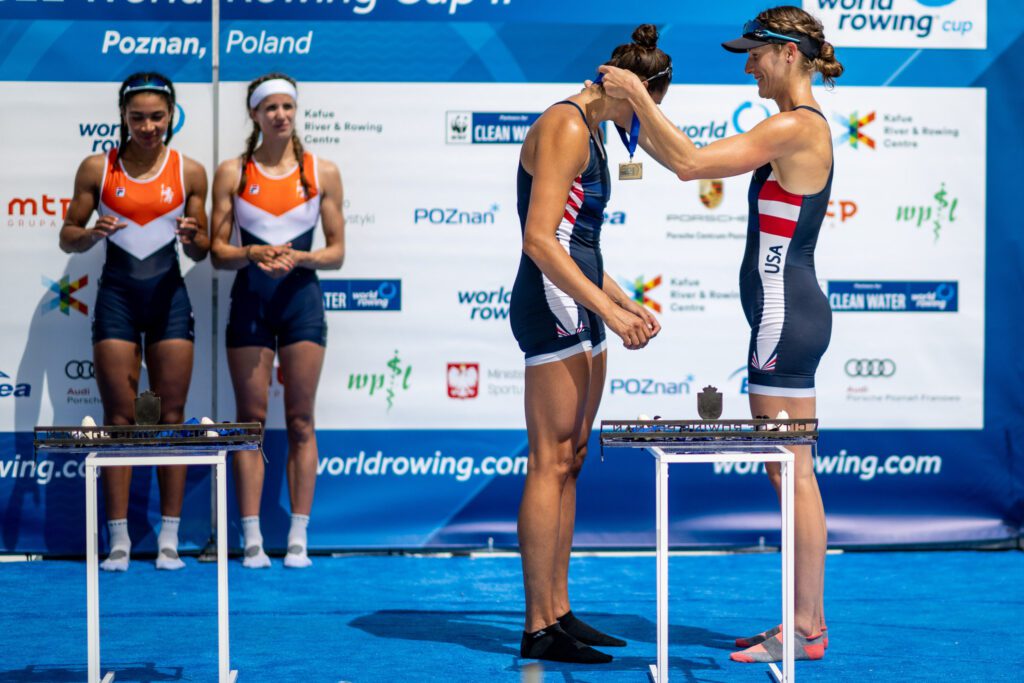
Photo USA W2x
Credit Benedict Tufnell
Yet another headline-making Dutch duo, W2x Roos de Jong and Laila Youssifou, led for their entire race keeping several chasing crews at bay in turn. As the line approached there was a raucous challenge by Ireland in the shape of former W1x champion Sanita Puspure and Zoe Hyde. Bow sculler Puspure put in a great display of back-seat driving to inspire a big push which held off charging Americans Kara Kohler and Sophia Vitas, though it never really threatened to upset the Dutch. Hyde is a full 16 years younger than her crewmate but at stroke could do worse than to trust Puspure’s competitive instincts.
“We were trying to fight for gold all the way, but it became really chaotic in the last hundred metres…”
Johanna Vos
The Dutch oarswomen are still saying they want to stay in this rather magic combination, but selection seems to be incomplete so anything could happen. “It’s where I would like to be, but we don’t know yet. But tournaments like this are partly a test, so we do seem to be progressing”, they said afterwards, before dashing off to do a second shift — and pick up their second gold of the day — in the W8+. “There may be seatracing, we don’t know.” Kohler was pleased with where she and Vitas had come: “The Dutch were going to be a long shot considering their skill and time in the boat, and we’re still figuring a lot of things out. And also the Irish, [we knew] we’d probably be fighting with them.” The duo were full of praise for the new boatyard sprinklers, installed to help the athletes cope with the heat of a Poznan June day.
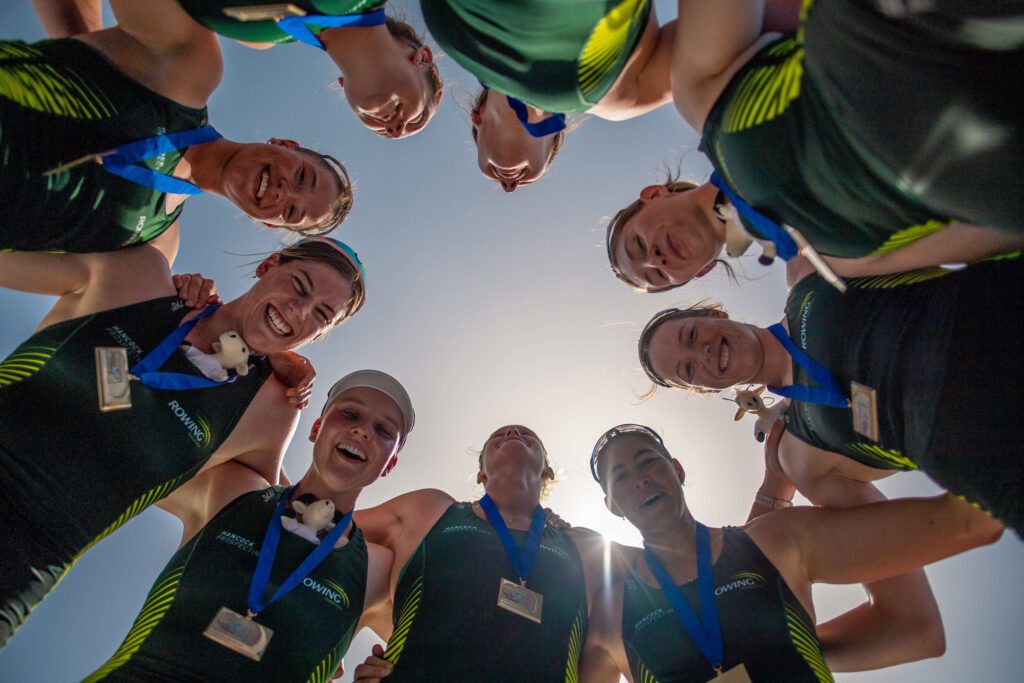
Photo AUS W8+
Credit Benedict Tufnell
The appearance of several Olympic champions on the racing scene has turned the heat up in Poznan, and the men’s fours were no exception. The end result was a win for Australia’s refreshed Tokyo combination, handily duffing up China who had dashed out fast, and then holding the determined Dutch at bay for the last 300m. Australia’s quartet looked both powerful and smooth, and were able to keep the rate high at 39 or higher throughout without compromising on technical quality, so that suggests the Dutch are the genuine article. Certainly they put Australia under pressure for much of the race. Meanwhile the Americans pulled out a final 500m nearly as quick as the Dutch to overhaul China for a good bronze medal.
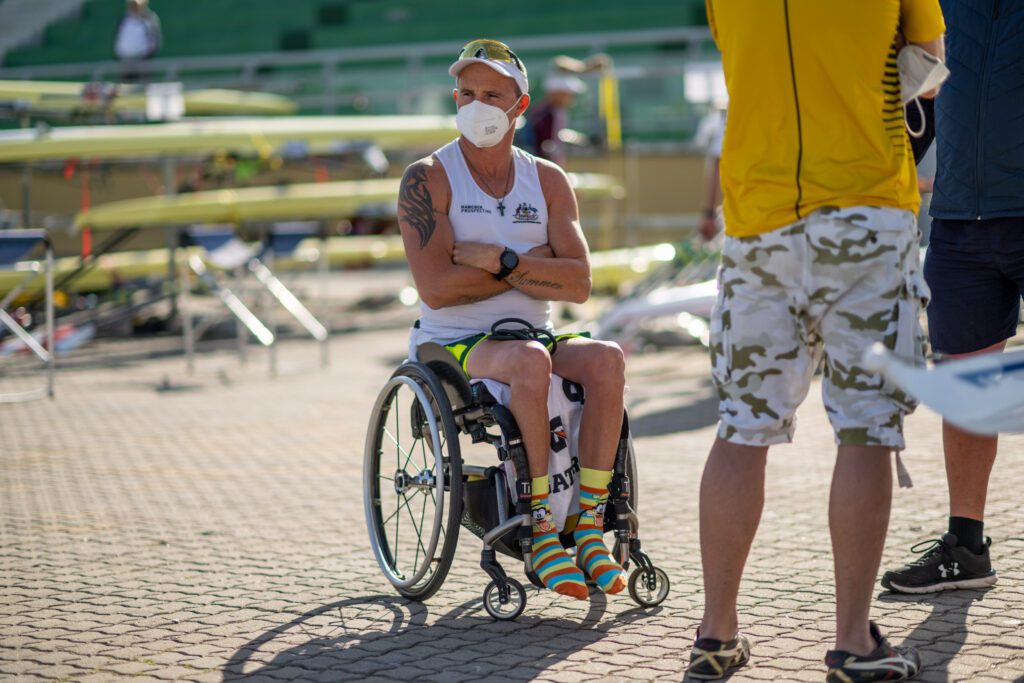
Photo Erik Horrie AUS PR1 M1x
Credit Benedict Tufnell
There was little to surprise in the para-rowing finals, Birgit Skarstein adding to her gold medal collection and the home nation’s Jolanta Majka and Michal Gadowski triumphing over Stephane Tardieu and Perle Bouge (FRA) while Corne de Koning (now listed in World Rowing’s database by his given first name of Marinus) claimed bronze with new partner Chantal Haenen, Annika van der Meer having retired from the sport to take up her career as a doctor. But it was strange yet spectacular to see Erik Horrie beaten convincingly again by Italy’s Giacomo Perini, who simply pressed on the gas in the second quarter, zooming away from the Australian. Perini has plenty of rock in his body, meaning he doesn’t need a seat-back to stabilise him despite having very little trunk function, so he can take on those with the longest arc. Although he is still very new to the sport, the prospect of the Italian racing and possibly beating the equally long-reach Roman Polianskyi in Racice this September is a juicy one.
In other news the men’s eights — without any Dutch entry to this regatta – went to the extremely new German crew who used their first senior outing together to send a clear message to those countries who like the men’s eights: Britain, Tokyo champions New Zealand and the USA for example. Rowing very similarly to their illustrious predecessors, the new Deutschland-Achter sped ahead of Australia in a five-crew contest. Canada withdrew on the morning of the final due to several members of their eight having come down with Covid, which will put a kink in their pre-Lucerne training even if Switzerland has lifted its isolation requirements for those who test positive.
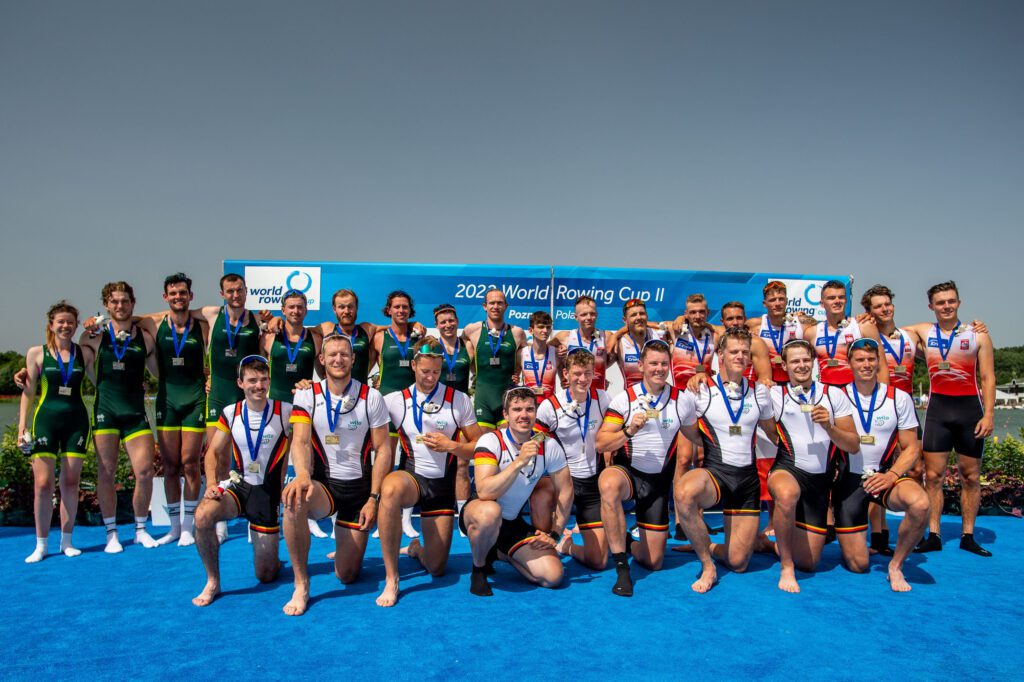
Photo M8+ Podium
Credit Benedict Tufnell
However it’s looking unlikely that the Kiwis will boat an eight for some time: their post-Games sweep squad is currently tiny and only a pair is visiting Europe for the world cups, though it’s probable a four could be created in time for the world championships if it is considered quick enough. Fortunately that pair, Olympic champions Matt MacDonald and Tom Mackintosh, have the mood and ability to dominate, which they duly did in the M2- final, winning gold untouchably ahead of the Dutch. Behind them were USA1, Justin Best and Michael Grady, saying they were excited to start being coached by Tom Terhaar who has recently left the US team to coach at Columbia but will be taking the California RC/Penn Athletic eight to Henley Royal Regatta.
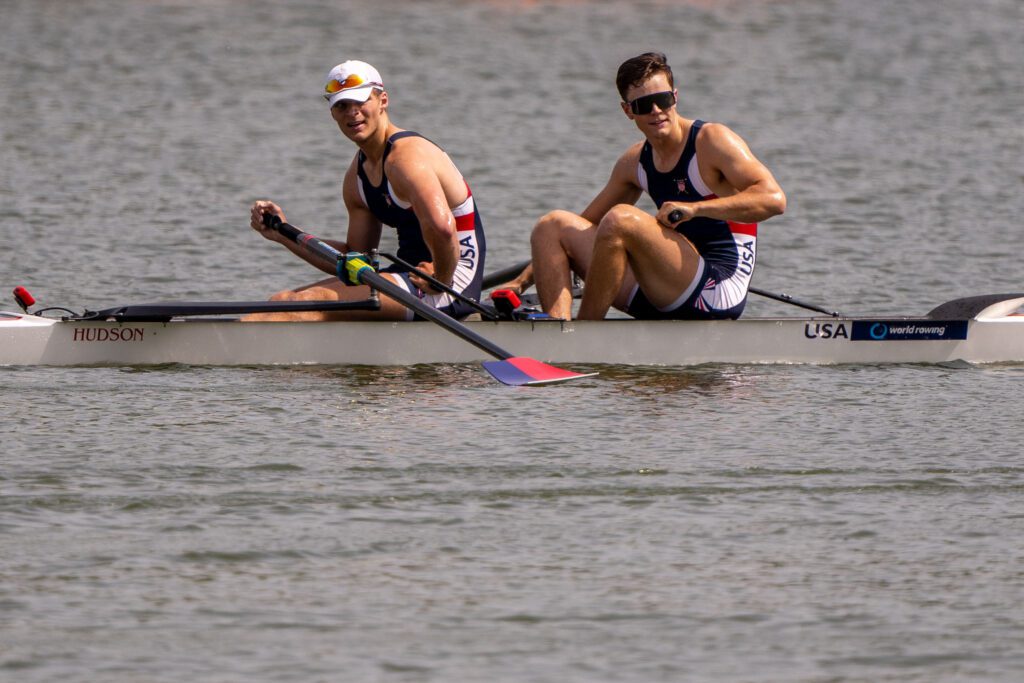
Photo USA M2-
Credit Benedict Tufnell
The new era is now in full swing and the class of 2022 looks quick. In three weeks most of them meet again — and now joined by Poznan absentees — in Lucerne.
